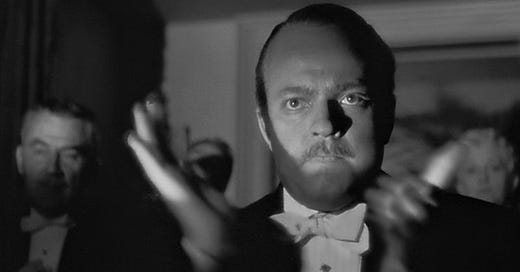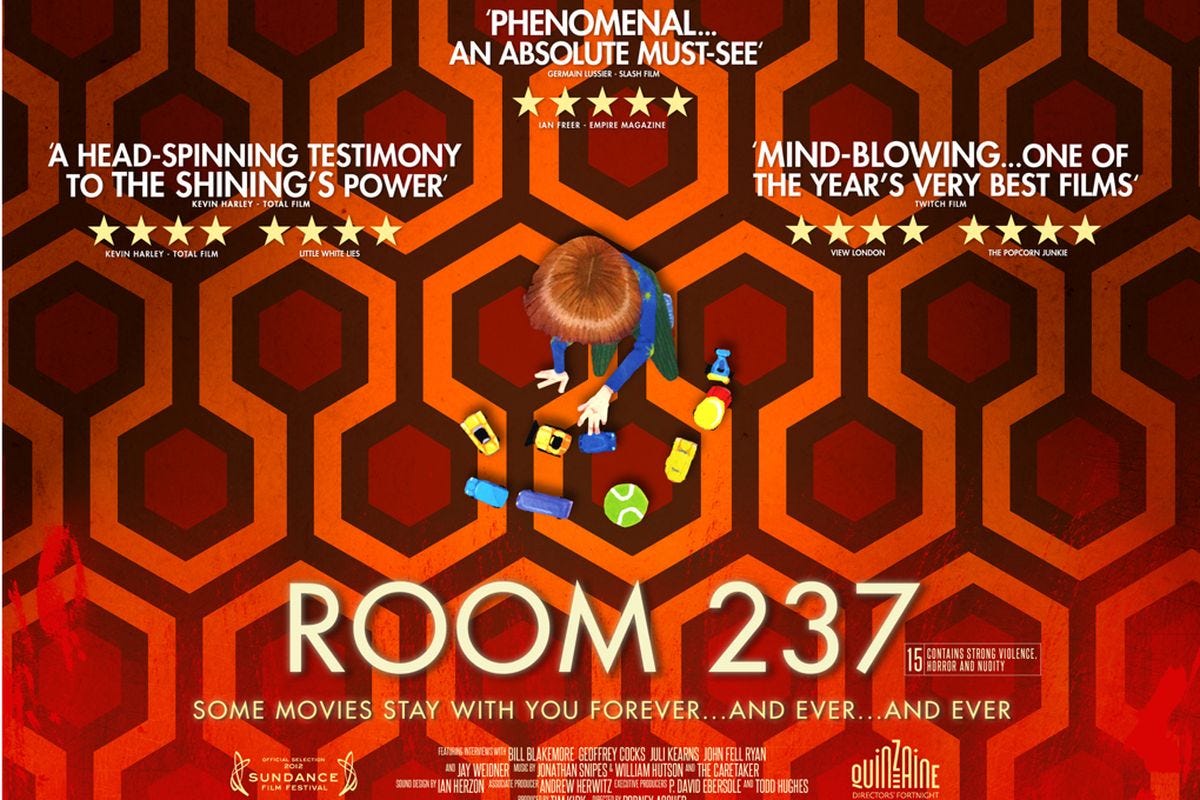I’ve mentioned this before, but the thing I find most unsettling—not scary or even annoying, really, just discombobulating—about COVID-19 and the lockdowns has been the disruption to routine. Not even the big ones, dealing with kids and school or work meetings or whatever. The little ones. The ability to check in on what’s happening in the world of movies every Saturday and Sunday morning and get a sense of the moviegoing pulse.
Once upon a time, on the weekends I’d wake up, check Deadline, and see how everything had performed at the box office and with audiences. That might sound redundant, but I assure you: they’re very different things. Raw box office totals measure merely what audiences were interested in, and while that data has some use, it’s limited. More interesting is seeing the delta between Friday and Saturday, what’s picking up steam, what’s frontloaded, what the per-screen breakdowns are, which parts of the country it’s playing well or poorly in, what’s declining unexpectedly sharply weekend-to-weekend, etc.
Performance at the box office is largely a function of advertising. Enticing people into theaters with a good trailer or high pre-awareness. Performance with the audiences is harder to measure, especially on the first weekend. A huge second-weekend drop suggests bad word of mouth. Rotten Tomatoes user scores can be gamed. Don’t even get me started on IMDB ratings. There was only one reliable way to see how a movie was performing with audiences that were excited enough to head to theaters to see a picture on opening weekend.
CinemaScore.
Checking on the CinemaScore was always the second thing after checking on the box office; Deadline often had it all in one handy story. CinemaScore was great because it polled actual audiences coming out of actual theaters after they’d seen actual movies. And because those polled were self-selected and predisposed to enjoy whatever they were being polled on—very few people go see movies they plan on hating, especially on opening weekends—there was an added intrigue to the results.
Does the movie play with the people who WANT it to play?
Critics hate lots of movies for lots of reasons; you would too if you had to see endless reams of pap. As a result, there are limits to the usefulness of Rotten Tomatoes and Metacritic as measures of whether a picture works for the people for whom it was made. (Frankly, Rotten Tomatoes and Metacritic shouldn’t measure whether a picture works for the people for whom it was made; that’s not the critic’s function.) What CinemaScore did was fill us all in not on whether or not a movie was good. It filled us in on whether or not it worked.
I’ve missed having that data, as we’ve spent the last year watching everything via streaming. So I was glad to read that CinemaScore’s Harold Mintz both wants to keep polling people in theaters and has plans to try and bring the same service to streaming movies.
And man: I’ll be glad when we get back to a point where I can wake up on Saturday morning and see how a film did at the box office and with CinemaScore.
Thanks for reading Screen Time. If you dig what we’re doing here, and I hope you do, please consider signing up for Bulwark+! Not only will it help keep this newsletter sustainable, it’ll also unlock access to special members-only episodes of Across the Movie Aisle. Do you want to know how Reddit saved AMC? Or why Joe Biden’s fancy watch isn’t that big of a deal, but is kind of interesting? You’ll have to sign up to listen why.
Reviews: Bliss (Amazon Prime) and A Glitch in the Matrix (VOD)
Bliss is a perfect example of a movie that transcends what it might have been on the page via a pitch-perfect piece of casting.
After a tough day at work—one that ends in his firing, as well as something a bit more serious—Greg (Owen Wilson) hits the bar. While sipping on his double whiskey, a woman starts staring at him. She waves her hand at him as if casting a spell; nothing happens to Greg, though the lights flicker in the background.
“You’re real,” Isabel (Salma Hayek) says to him, surprised.
Thus begins their adventure. Isabel, after getting Greg out of a jam with the authorities, tells him that they’re living in a simulation, and that when they consume special yellow crystals they can alter their reality to better suit their whims. Whether that’s by lighting candles with their fingers or knocking people down at a roller rink, these magic little pills can make him forget his worries.
And his kids. While bingeing on the illicit substance, Greg misses his daughter’s graduation—a sore subject, given the fact that his wife has left him over what was, one senses, a previous addiction issue. But no matter: This is all just a simulation anyway, right?
Bliss is somewhat ambiguous as to whether or not reality as Greg understands it is real or a fabrication designed by scientists in a post-scarcity future to help people living in a perfect world appreciate just how good they’ve got it. That ambiguity forces us to question whether Greg is experiencing a profoundly transcendent experience or a mind-altering addiction inducing a schizophrenic break from reality.
And in that ambiguity, we can understand why Wilson was the perfect choice for this movie. Owen Wilson—who has reportedly suffered from a rather serious heroin and cocaine addiction and also attempted suicide—hasn’t starred in a film in four years. One can understand why Bliss, a movie about a guy struggling to cope with the mundanity of the world by diving head-first into drugs, would appeal to him.
His experiences imbue his performance with an added level of pathos; Wilson was always one of the more soulful members of the so-called frat pack from the golden age of early-to-mid-aughts raunch-coms, and this material gives him much to work with. You can see the pain in his face when Greg talks to his daughter about the myriad ways in which he has let his family down, time and again, thanks to his substance abuse problems. He’s sad and pathetic, but Bliss isn’t maudlin about it, a delicate balance to maintain.
I don’t know that the movie works as a whole, to be totally honest; it’s the sort of picture that unironically casts Bill Nye as a science guy and has Slavoj Žižek play himself. And the ambiguity that writer/director Mike Cahill leans on for the film’s power is undercut in ways that make it pretty clear Greg is, in fact, living in a simulation—we, the viewer, see things Greg does not and cannot see that suggest he is in unreality—which in turn muddies the impact of the final, wrenching scene.
Still. It’s great to see Owen Wilson back onscreen. And good for him for trying to work his issues out through his art.
A Glitch in the Matrix, Rodney Ascher’s new documentary about people who are convinced we are living in a simulation, is the perfect movie to pair with Bliss. It’s fascinating and bizarre and, ultimately, kind of terrifying—what I imagine it might be like to be around at the birth of a new religion.
Because, ultimately, that’s what people who believe we live in a simulation have done: filled the religion-sized hole in their chest with something to believe in, something that orders the universe and gives their lives meaning. And that’s why it’s also kind of terrifying. The figures in Ascher’s documentary speak straightforwardly and seem at ease about enduring what amounts to a schizophrenic break, articulating, as they do, their belief that they exist in a world where people aren’t really people, where bodies aren’t bodies but code, where the world is a fabrication with only a few actual intelligences interacting with endless armies of non-playable characters (NPCs).
Using a speech by Philip K. Dick—who was both a literary genius who almost certainly had a psychotic break late in life (these two things may have been related)—as its spine and The Matrix as its common cultural touchstone, A Glitch in the Matrix is a deep dive into the world of those who believe we are living in a simulation. The theory goes something like this: Any advanced-enough society will generate simulations of their reality, and likely billions of them, so what are the odds that we’re living in the “base” (or real) reality as opposed to one of the billions of simulations?
Ascher focuses on a quartet of true believers as to how they found themselves falling into this rabbit hole; three are represented by animated avatars and the fourth is audio-only, for reasons that become obvious as the film progresses. Their stories are all weirdly similar: a sense of unreality in the world compounded by exposure to media that reinforces their delusions, all of which culminates in the sense that they alone are real and everyone surrounding them is an NPC.
The film is deeply disturbing for a very specific reason: These guys (and they’re almost always guys; only one woman is interviewed in the entire documentary) all sound like mass killers. These solipsists cannot understand a world outside of their own mind; they cannot understand how other people think or feel; one literally imagines everyone else simply shutting down and standing, stone still and silent, until he comes back into the room.
Ascher’s oeuvre is concerned with obsession: In Room 237, he chronicled folks who pored over The Shining; in The Nightmare, he focused on sleep paralysis. (More on Room 237 below.) But neither of those films is about its ostensible subject. They are, rather, both chronicles of obsession, of the ways in which focus on a single thing can warp our worlds. A Glitch in the Matrix is a fine addition to this burgeoning canon of obsession, and a must-watch for anyone who wants to be freaked out by where our technobabble is taking us.
Assigned Viewing: Room 237 (VOD)
Here’s what I wrote about Room 237 when it was released in 2013:
What you find time and again are Ascher’s interview subjects finding themselves in Kubrick’s work: consider the professor of history who focuses on the Holocaust reading the film as a comment on the Nazi’s killing of the Jews, or the man who lived near Lake Calumet deciding that the inclusion of Calumet baking powder in two key shots means that it’s a film about the slaughter of the Indians.
Room 237 isn’t about The Shining or the Holocaust or the slaughter of Native Americans or the Apollo moon landing. It’s about people finding order in chaos. It's about all conspiracy theories and all conspiracy theorists, not just those who happen to have latched on to The Shining. It’s also a brilliant piece of filmmaking and one of the best documentaries in recent memory.
Good movie! You should check it out.
Second Assigned Viewing: Star Trek VI: The Undiscovered Country (Amazon Prime)
Late-breaking addition here: RIP Christopher Plummer. Star Trek VI may not be his greatest role, but it’s almost certainly my favorite. A Klingon warrior spouting lines from British literature? Aside from Khan, whose wrath James T. Kirk had faced a few films prior, Admiral Chang was the only truly worthy adversary that The Original Series’s captain was asked to face in cinemas.
And if we’re being honest with ourselves, we all know Chang was the better villain: smarter, more ruthless, and, frankly, just kind of unlucky to lose to Kirk.









